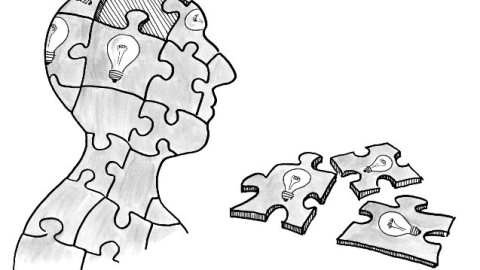Changing Minds Isn’t Like Changing Light Bulbs

Changing minds often isn’t like changing light bulbs. Many bright ideas don’t fit your sockets. Wonks particularly need to grasp that incorporating new data or arguments can be closer to rewiring or remodelling.
“Politics is Making Us Stupid,” partly because “we can’t trust our own reason.” That’s uber-wonk Ezra Klein’s assessment of Dan Kahan’s “identity-protective cognition” research (on how social-status factors influence reasoning). Kahan used a brain-teaser presented in neutral and politicized forms to measure how reasoning varied by numeracy and ideology. Some highlights: 59% fail the neutral case. Participants with 90th-percentile numeracy got neutral and politicized cases correct 75% and 57% respectively. Insanely, higher numeracy worsened politicized results. Klein’s piece illustrates seven issues:
1. That we aren’t impartial thinkers should surprise nobody. Motivated reasoning is everywhere evident. As Upton Sinclair noted “It is difficult to get a man to understand something, when his salary depends upon his not understanding it!” For wonks harboring “rationalist delusions” and needing further evidence: “confirmation bias” was “discovered” in the 1960s.
2. “The more information partisans get, the deeper their disagreements” is greatly overgeneralizing. Kahan couldn’t have shown that, he only used one kind of numeric data. Other sorts of information (e.g. of a partisan leader switching positions) likely have different effects. And unquantitive factors (like morals/rights) are properly influential.
3. “Being better at math…drove [partisans] further apart.” Drove is too causal for Kahan’s correlations. Similar laxity in Klein’s piece equates “smarter” with higher numeracy.
4. Too much science/wonkery ignores that our cognitive capabilities evolved in contexts where disrupting your tribe hurt your chances of survival. Only relational rationality was and is adaptive.
5. Social science results, like humans, are motley (high-numeracy politicized case: 57% correct, 43% wrong). “Explainers” and policymakers must cope with such heterogeneity. Some are safer in trusting their reason.
6. Klein is admirably wrong in believing the “point of politics is policy.” For many the point is winning, even at the cost of policies you prefer. GOP attacks on Obamacare, including on elements they first proposed, show they’d rather disown their own ideas than see opponents use them. The Founders rightly feared such “faction.” Democracy without heterospective (other-view-ness) is unstable.
7. Division of mental labor is as useful as any other kind. Most make neither their own shoes, nor much of what’s in their own minds. We choose among shoes and thought patterns built by others. (Darwin: “Much of the intelligent work done by man is due to imitation and not to reason.”)
The lesson here isn’t that “we can’t trust our own reason.” There are three takeaways: first, changing minds is hard because they’re not empty. Anything new requires integration into the (often arduously built) preexisting contents. Undisruptive data and ideas plug-in more easily. Second: complex decisions are stressful, so shortcuts are tempting, e.g. relying on trusted others, especially leaders. Third: since all reason is motivated, we need leaders motivated by more than faction and self-interest. As the Founders declared, leaders motivated by what is “wholesome and necessary for the public good.”





